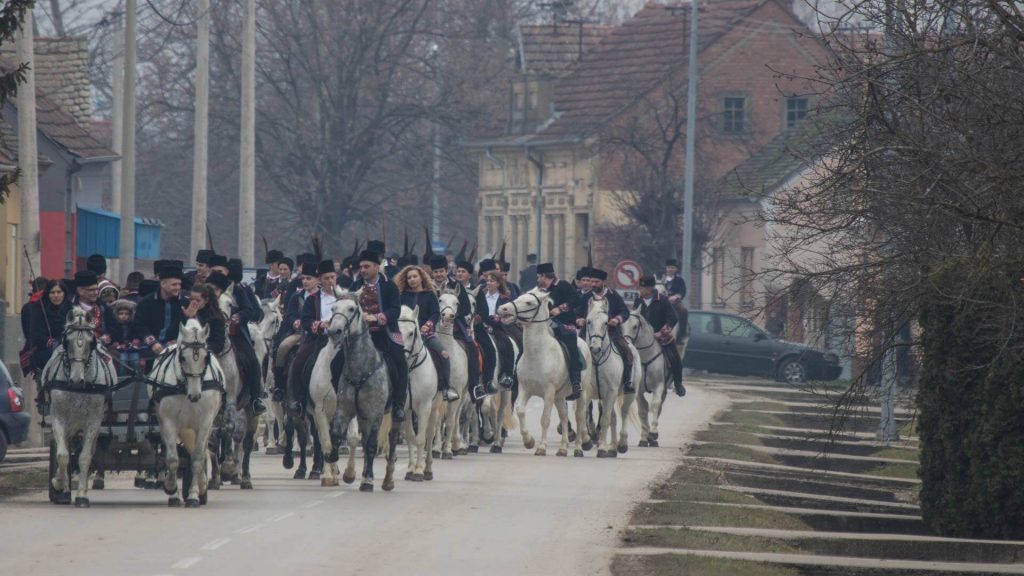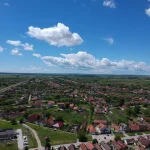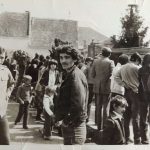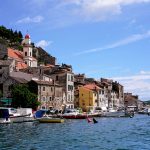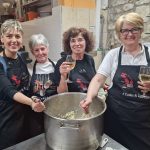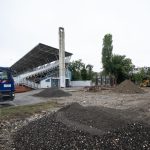The Carnival (Poklade) is a calendar custom between the Epiphany (January 6) and Lent (Korizma). It is marked by masked processions and parties, merriment, madness and debauchery, and an abundance of food and drink. The highlight of the event is the last Sunday, Monday, and Tuesday (Shrove Tuesday) before Ash Wednesday. Its roots don’t have anything related to Christianity – primarily of magical, apotropaic significance. Any disguise, clothes worn on the wrong side, deafening noise, pouring ashes, and more, should drive away the winter, demons, and evil forces that repel their actions from people, livestock, homes, and crops. Carnival events in the Croatian folklore tradition can be divided into two main types. One type is referred to as lupercal; they are seemingly more archaic, common in the rural and livestock areas. Participants are groups of men dressed in animal skins, with bells hung on their bodies or worn on their hands. The second type of carnival event in Croatia is saturnal; they occur in cities, particularly common on the Adriatic coast and island areas. These usually contain less magical features and are more focused on entertainment and social criticism. As mentioned before, even though the event overlaps with Christian holidays, the Catholic Church has been trying to suppress these traditions for centuries because of the opposing nature to every existing authority throughout history.
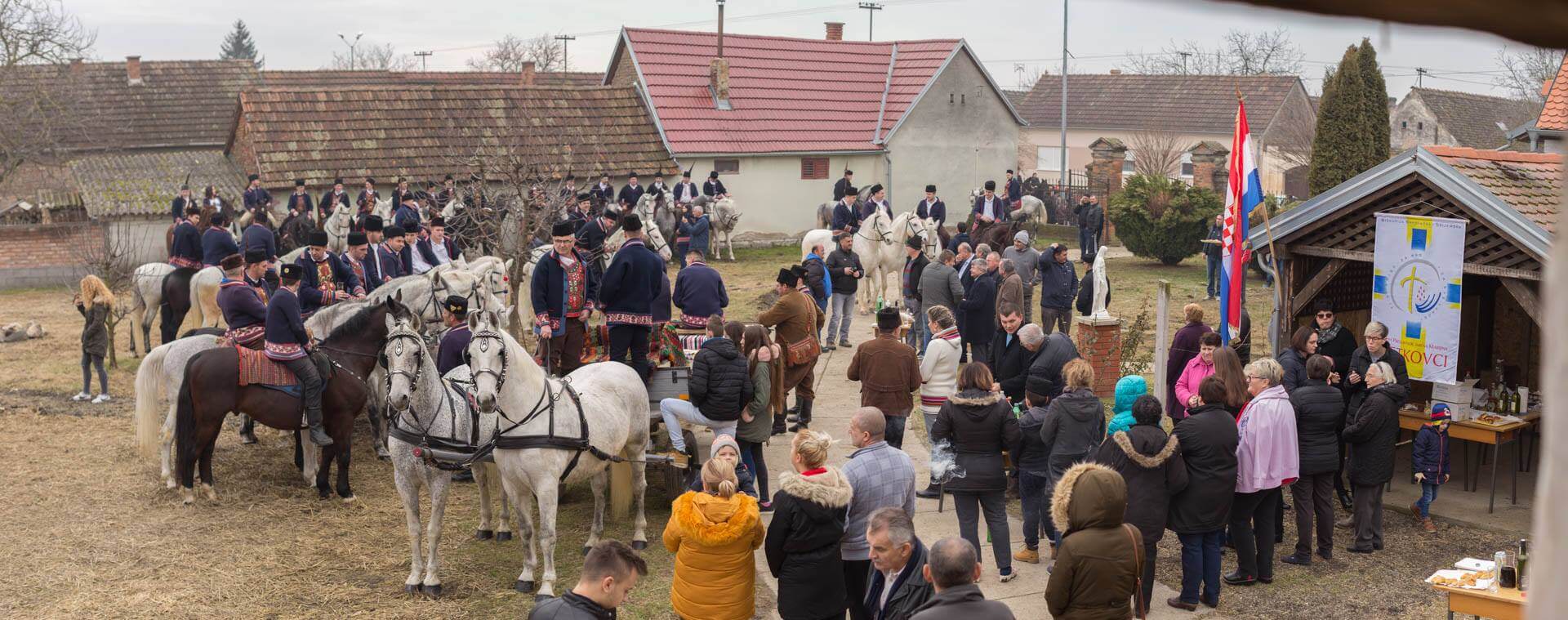
Photo credit: Marko Miličević – načelnik Općine Ivankovo
The Eastern Slavonian Carnival is used for the hedonistic type of “partying” before Lent – a time for mourning, renunciation, and penance. Every village has its own day for organizing the Carnival, it all depends on when Lent starts. Carnival time starts with Masquerade (Maškare), more precisely, the procession of rural masquerades with participants disguising themselves in various characters. Men are mostly dressed as women and women are dressed as men. Masked groups visit every house in the village and sing in front of them for gifts like sweets, food, and drinks. After that, “masqueraders” thank the hosts and continue their journey through the village looking for more gifts. However, in the 2000s, these masked groups became groups of children who would go on tour all over the village after school, singing and seeking gifts from villagers. If a host doesn’t react to the singing of masked children and doesn’t come out of the house, houses get “attacked” by rotten eggs. This tradition probably came into relevancy in the last 20 years or so because it is impossible to find a legit source about it and it is not a really pleasant experience, especially if you need to clean rotten eggs off the walls of your house.
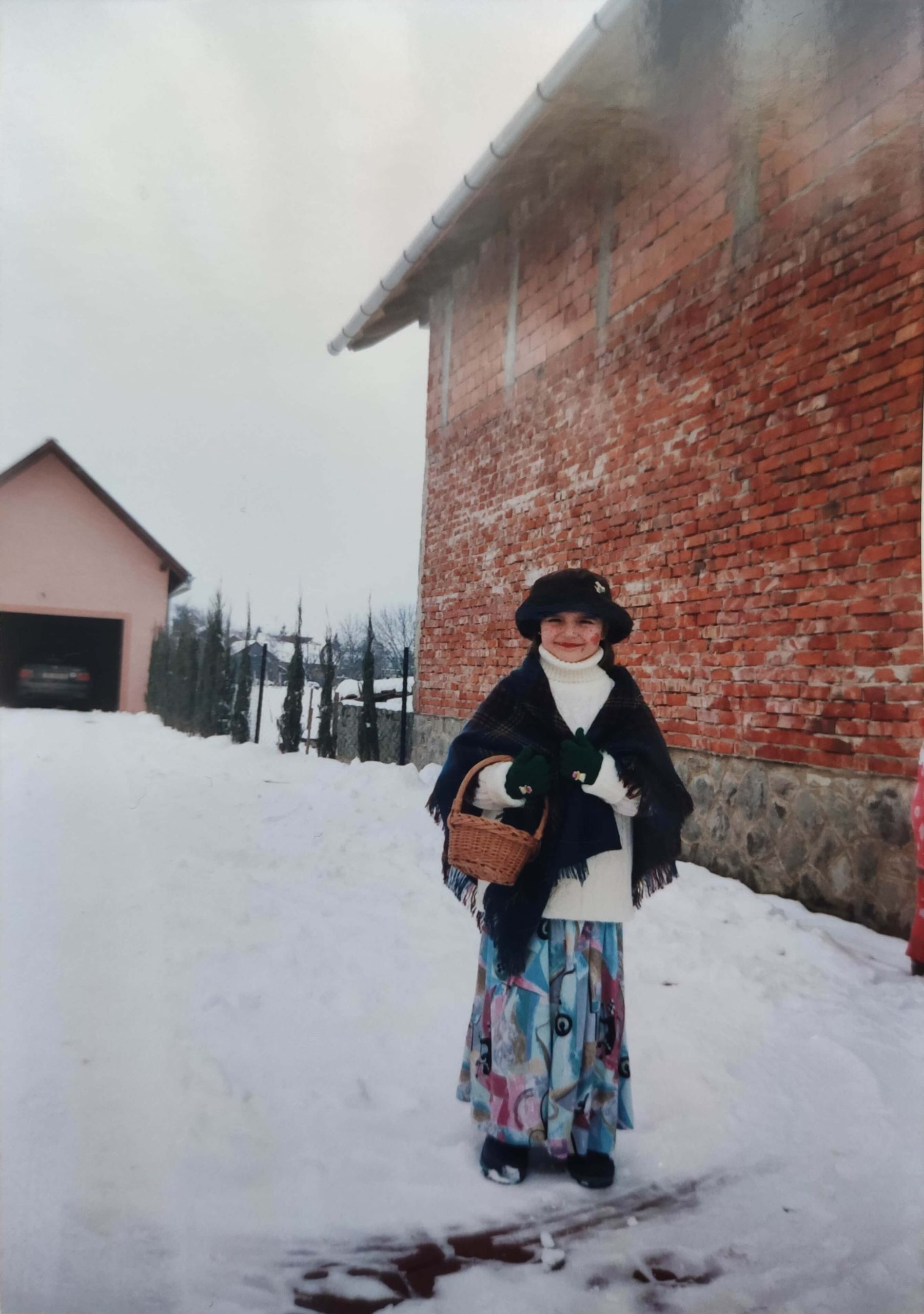
My sister ready for masquerade with her friends, at the beginning of 2000s – Private album
A huge part of the Carnival in Slavonia is the so-called Carnival riding (Pokladno jahanje) which is a tradition that goes back all the way back to the 18th century. Carnival riding came to prominence during Military Frontier (Vojna Krajina) and some Slavonian villages maintained it until after Second World War. The custom was revived after the Homeland War and again became one of the most important events in Slavonia. Riding through the village, the riders would stop at houses of certain families who treated them with Slavonian food and drinks and they usually repay them with a song. After leaving the host’s house, the horsemen would sing “Domaćine, od srca ti hvala, što nam tvoja desna ruka dala” (Thank you, hosts, thank you from the bottom of our hearts, what your right hand has given us”). This type of celebration is still going strong and has more and more riders every year, in an effort to preserve the tradition and identity of Slavonia. What is also characteristic of this Carnival is that in some places in Slavonia masked plowmen come with the plow to plow village streets or yards and for that job they get rewarded with sausages, sweet cakes, and donuts (in Eastern Slavonian slang “krofne”) by hosts.
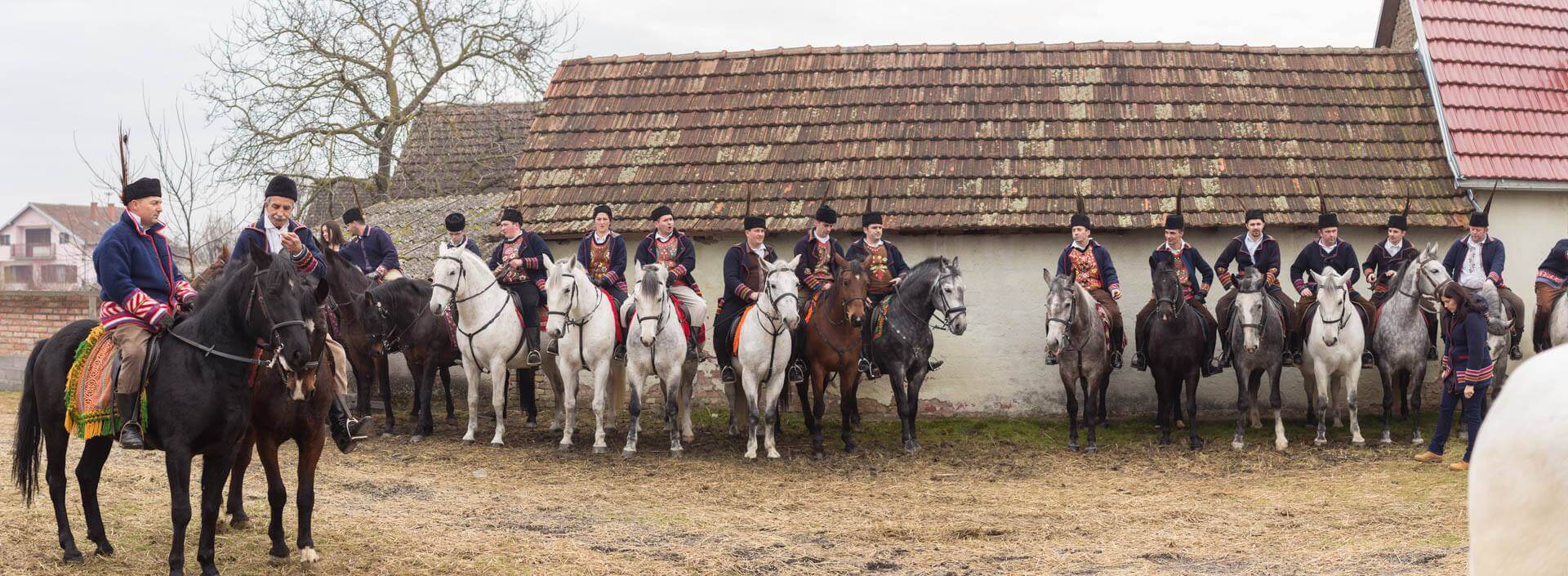
Horsemen getting ready to start their tour through the village – Photo Credit: Marko Miličević – načelnik Opčine Ivankovo, Facebook page
This event, as mentioned before, is an intro to Lent and lastly Easter. Apart from organized games and parties, Carnival is also a great place to introduce the traditional food and drinks Slavonia has to offer. However, that needs its own article. Until next time.
For more, check out our lifestyle section.

